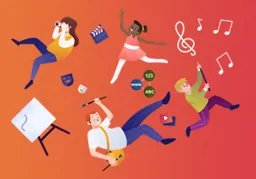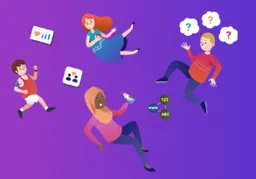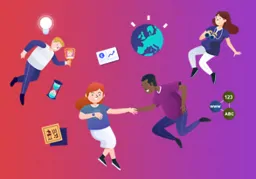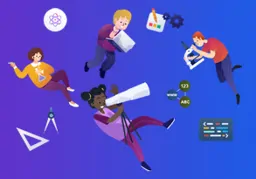AREA OF LEARNING AND EXPERIENCELanguages, Literacy and Communication
Guidance to help schools and settings develop their own curriculum, enabling learners to develop towards the four purposes.
2. Statements of what matters
Mandatory
Languages connect us.
Languages connect us with people, places and communities. This Area is designed to equip learners, as citizens of a bilingual Wales in a multilingual world, with the ability to use Welsh, English and other languages in a plurilingual context. Meaningful language learning experiences go hand in hand with learning about one’s own cultural identity as well as the cultural identities of others. Engagement with this Area can therefore foster in learners pride in their sense of identity and belonging to Wales as well as the world.
By raising an awareness of the diversity of languages from a young age, the aim is to enable learners to recognise similarities between languages and to embrace the differences between them. Learning and experience in this Area can support learners to develop an understanding of the origins, evolution and features of a range of languages. This provides them with opportunities to develop their creativity, as well as a set of skills such as mediation, adaptability and empathy.
Understanding languages is key to understanding the world around us.
Languages and literacy are fundamental to human communication. They enable us to make sense of what is heard, read and seen, and thus to develop our understanding, empathy and our ability to respond and to mediate effectively.
This Area aims to provide learners with opportunities to experience languages, as well as images, in a range of forms and genres. The rich and varied nature of these experiences can improve learners’ ability to become creative and enterprising in their use of a range of languages in a plurilingual context. They can also help learners to develop the skills to become unbiased and critically-aware interpreters of what they hear, read and see in order to interact as capable, informed citizens of Wales and the world.
Expressing ourselves through languages is key to communication.
Clear and effective communication through language is an important life skill. It calls for the ability to use and adapt languages in a range of roles, genres, forms, media and styles and in a suitable register. In a bilingual and multilingual context, this also calls for the ability to choose an appropriate language and to mediate.
In this Area, learners should be given opportunities to use languages in order to be effective as they interact, explore ideas, express viewpoints, knowledge and understanding and build relationships. The learning and experience supports them to develop an awareness of how they use a range of languages to express themselves for different purposes and audiences. For Welsh or English this includes both speaking and writing.
Literature fires imagination and inspires creativity.
Literature expands horizons. In all its forms it can inspire and motivate us, while also helping us to learn more about language and communication.
This Area provides learners with literary experiences that can engage them as listeners, viewers, readers, narrators and creators. These experiences support them to appreciate a creator’s craft as well as develop their own creative skills. They should be encouraged to experience and respond to a variety of diverse literature that gives them insight into the culture, people and history of Wales as well as the wider world. Through this, as their understanding of their own and other people’s experiences, beliefs and cultures is enhanced, learners can develop their ability to demonstrate empathy. This in turn can contribute to their emotional and mental well-being. In all, the literary experiences offered aim to spark learners’ imagination and creativity and help to build a lifelong love of literature.







